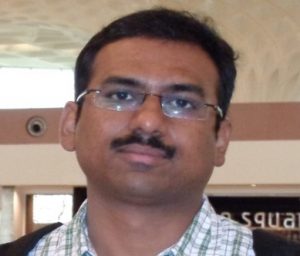
Nguyen Ha Huy Cuong, Ph.D
Department of Information Technology The University of Danang,
College of Information Technology Da Nang, Viet Nam.
Title: Optimal Deep Learning Model for The Classification of The Ripeness Stage of Pomegranate Fruits in Orchards
Abstract:
A calculation of the ripeness of pineapple can help improve agricultural productivity. Increasing yield can be accomplished by anticipating fruit maturity before harvest. Market acquisition results are improved when ripeness is graded. In addition, micro-fertilizers are applied based on identification results. Vietnam’s central region was studied to determine when pineapples ripen. You can download an app for your smartphone. The research model used in this study combines academic research with technology transfer. For the detection of objects, the YOLO –V7 recognition model version 3 has been developed. In recognition, there are three types of models: pre-processed, training, and testing. Using an image set, we developed a pre-processing model. There are now 500,000 pineapple photos in the database. During training, these images are analyzed using the YOLO –V7 algorithm. We will implement a testing model as part of the YOLO –V7 project. As a result of developing a cross-platform app for smartphones, we learned about delivery models. Our image database is used to train these models. We were able to reduce training time and improve training, quality as a result of our research. With 98.20 percent recognition, it is highly accurate, fast, and sensitive.
Sachin Pawar
Scientist, TCS Research, Pune, India
Title: Applications of Information Extraction in HR Domain
Abstract:
Our group has been working on multiple interesting problems in HR (Human Resources) data analytics. In this talk, I will talk about our work on information extraction from resumes and some interesting applications of this extracted information. We extract various types of information from resumes by modeling them in terms of various entities and relations. We use several different information extraction techniques ranging from linguistic patterns to recent deep learning-based techniques. The extracted information is analyzed and consumed by multiple downstream applications. The first application is an automatic prediction of skill proficiency levels using the information extracted from resumes. And the second application is the automatic creation of a ranked list of candidates for a particular job description.
Prof. Dr. rer. nat. habil. Sven Groppe
University of Lübeck, Institute of Information Systems Lübeck, Germany
Title: Quantum Data Management
Abstract:
This keynote includes a short introduction into quantum computing and its new opportunities, especially for data management tasks. The classical and the quantum world are compared with special regard to the phenomena occurring in the quantum world and how we can utilize these phenomena for developing new approaches and speeding up our known problems in data management. An overview of the current state-of-the-art in quantum algorithms is given with a special focus on quantum counterparts of existing classical algorithms. Single problems in data management are picked up (e.g., optimizing transaction schedules in relational databases) and different approaches to solve these problems on quantum computers are discussed.
Prof. Milos Stojmenovic
Department of Computer Sc & Engineering, Singidunum University, Serbia
Title: Blockchain Applications and Research Directions
Abstract:
Much attention has been paid globally to the rise of Bitcoin in the past decade. The decentralization of money is a seminal event in human history and should be celebrated as such, but it is not the only achievement that cryptocurrency and blockchain applications offer. The notion of decentralized proof of ownership can be deployed to industries that were previously impossible to imagine without centralized control. The ownership of stocks, bonds, real estate, and even intellectual property can be tokenized, or put on a blockchain, which makes its ownership verifiable and easily transferable. The democratic process of voting can also be blockchain-based, but this raises the question of privacy. Do we want everyone to know who we voted for? Verifiable private transactions are a popular research direction within the blockchain space. Some cryptocurrencies already implement such solutions while others strive for complete transparency. There are thousands of cryptocurrencies in existence today, and some attempt to solve very interesting, practical problems. We will dive into the technological, as well as innovative state of the blockchain industry, highlighting areas of research as well as practical interest.




